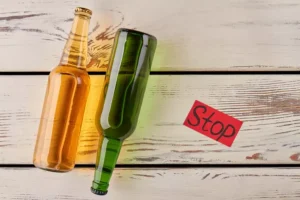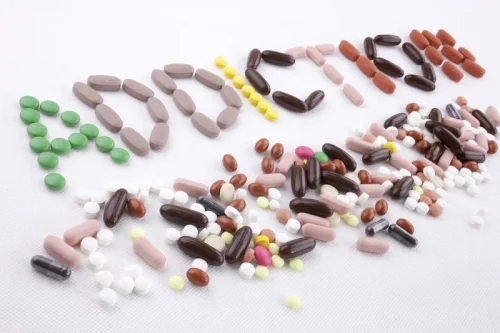
Help the person stay connected with all of these vital members of their support team. It can often be beneficial to communicate with these other supporters, but only if you are explicitly permitted to do so by the person you are assisting. Your loved one might relapse several times before finding an effective treatment method that keeps them on track. And remember that millions of people who were once experiencing alcohol or other substance dependence are now living happy and fulfilling lives. In 2016, Rutherford created the cloud-based Recovery Data Platform that houses “recovery vital signs” from 70 recovery organizations nationwide.
Recovery Support Tools and Resources
Nevertheless, only a small percentage of those with substance use problems ever seek treatment at all. One is that many treatment programs require as a condition of entry a commitment to abstinence— yet that commitment is required before a person can even imagine life without the substance or access the support for doing so. Another is that those caught up in addiction frequently feel too much shame about their problem to share their struggles with anyone else. Yet another is a history of having tried to stop many times before and failed, which can lead a person to believe they don’t have what it takes to succeed in controlling their problem. Some choose—or are remanded by law enforcement—to do it with the help of some type of clinical service, some prefer the support of peers, and many do it on their own.

What is a support system?
Exercise, listening to music, getting sufficient rest—all can have a role in taking the focus off cravings. Relapse is common and experts see it as an opportunity for family support in addiction recovery learning about and overcoming impediments to change. The endpoint is voluntary control over use and reintegration into the roles and responsibilities of society.
Support Groups
Education and awareness around the harm of using substances, along with the support of friends, parents, and caregivers, can help prevent SUDs. Bringing Recovery Supports to Scale Technical Assistance Center Strategy (BRSS TACS) is enriched by the lived experiences of people in recovery, who play key roles in BRSS TACS project leadership, development, and implementation. This group of people with lived experience advises the NIH HEAL Initiative on research directions and ensures that research takes into consideration input from people and communities the initiative aims to benefit.

There are coping strategies to be learned and skills to outwit cravings, and practicing them not only tames the impulse to resume substance use but also gives people pride and a positive new identity that hastens recovery. NA is a support group modeled after AA that provides a community of support for those recovering from drug addiction. Members of NA motivate each other to stay committed to sobriety and avoid falling back into patterns of abuse. Meetings typically involve individuals sharing their stories of addiction and recovery. Dialectical behavioral therapy (DBT) is a form of CBT therapy that approaches intense or uncomfortable emotions and uses processes to help people manage them safely.
- Research consistently shows that positive family relationships and supportive social circles are closely tied to successful recovery outcomes.
- Residential care may be of most value to those with an unstable or unhealthy home environment.
- And one measure of a comprehensive substance abuse treatment program is the help it offers to enrollees to identify their interests and find and build a meaningful career path.
- The change destabilizes the adaptation the family has made—and while the person in recovery is learning to do things differently, so must the rest of the family learn to do things differently.
- This group of people with lived experience advises the NIH HEAL Initiative on research directions and ensures that research takes into consideration input from people and communities the initiative aims to benefit.
Everyone’s situation is different, and the person with addiction may not have sought treatment or could be refusing treatment and help. A person may have a friend or family member with addiction and wonder how to help them. • Therapy enables each individual to identify the situations that serve https://ecosoberhouse.com/ as triggers to drug use and to develop their own workable ways to manage them. • It helps those struggling with substance use find the internal motivation to change and helps them develop the capacity for it. Data indicate that 85 percent of people who struggle with addiction do not seek help.
Addiction is a treatable disease
Your doctor can also refer you to a treatment facility or experts who can support you in the recovery process. Most inpatient alcohol rehab centers offer 30 to 90-day programs to allow people to focus solely on their recovery without distractions. Remaining in treatment for a sufficient amount of time can be critical to recovery. Overall, the journey of recovery is multi-faceted, embracing both the challenges and opportunities of a life in sobriety. Whether it’s through solid support systems, the reconciliation of relationships, personal growth, or educational and career advancement, each step forward marks meaningful progress. Altogether, the path to recovery and rediscovery is a testament to the strength and resilience inherent within each individual.
They can help you feel less alone when you’re struggling with addiction and offer different perspectives. Therapists and counselors are also equipped to deal with the psychological and emotional weight you may be carrying. While friends and family are there to support you, they may not have the coping mechanisms or skills needed to handle the intense emotional swings involved in addiction. Sponsors are typically people who have recovered from addiction as well.
Can Therapy Be Part of Your Support System?
However, outpatient treatment allows patients to live at home during recovery. Depending on their condition, patients can sometimes continue working and caring for their families while attending weekly scheduled treatment sessions. Although addiction tends to cut people off from longtime friends, social support is a significant predictor of recovery.

Many programs, organizations, and resources are available to support people recovering from alcoholism and help them stay sober after rehab. Lengthier addiction treatment programs can seem intimidating at first, but they may bring you the best results. People can live at home while getting outpatient alcohol addiction treatment, providing the flexibility that many need to meet family or work obligations. People who receive this treatment need a stable home environment that’s alcohol and drug-free. Family and friends also play a vital role as a personal support system. Open communication with loved ones about one’s needs and boundaries encourages a healthy and supportive environment.